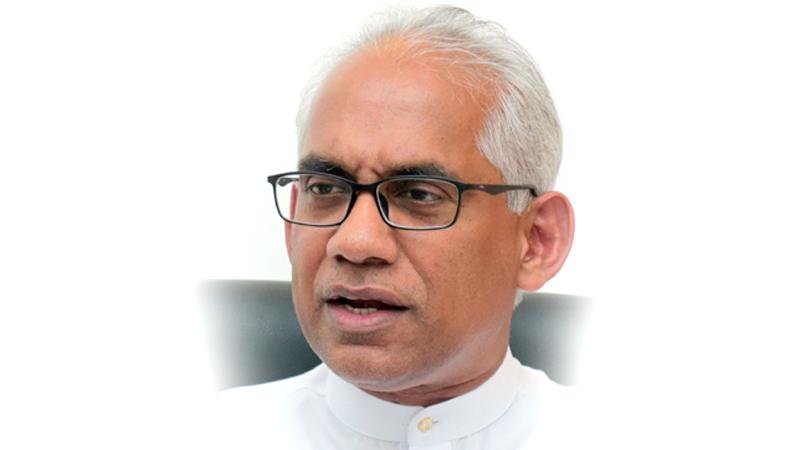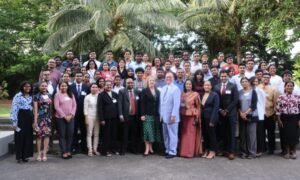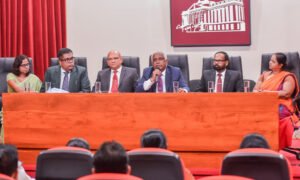
Eran Wickramaratne
Mr. Eran Wickramaratne, the opposition member praised the government and the Women Caucus in Parliament for having brought a progressive bill to empower women while addressing the debate, he said that with the amendments presented by the opposition, we would pass this bill without a vote in parliament.
Addressing the debate in Parliament on Tuesday on the new bill for women empowerment, Mr. Wickramaratne also said the following.
In the name of religion and culture, we cannot make discrimination to women, we cannot take away women’s freedom. Every culture in Sri Lanka has positive and negative aspects about women. They should be taken care of, but equality cannot be deprived of.
The constitution, which is the supreme law of the country, states that all human beings should have equal rights. When asked if everyone accepts this and gives equal rights to women, there is a feeling of reluctance in many people.
“Under such contexts, we have to ask whether women are not full human beings.”
Mr. Wickramaratne highlighted the obstacles to women’s freedom and emphasized that in order to remove them, by overcoming religious and cultural barriers, there should be a change in the attitude of the society.
According to cultural characteristics, the married woman is asked whether she should do a job. Women should have the right to decide whether to work or not, even if they have to take care of the children. Further, if a family has limited resources, there is a tendency to give more to the boy. Who is given priority in education when family resources are limited? There is also a custom that the male child should own the house. He asked whether there is consideration of equality in solving such practical problems in families.
The MP also raised the problems faced by women in social activities. In mixed schools, the president of societies are always the male student, and only the secretary post is given to the woman. If we take the field of education, women take the first place in the Ordinary level, advanced level and tertiary education. He recalled that although 75% of the law College students are women, there are only two or three female Presidential Councils.
Regarding the prevention of violence against women, he also pointed out the lack of necessary provisions and facilities in the existing legal framework. If we take the children and women’s bureau, there is not enough provision for the training of its officers, even though there is a women and children’s office in the police, there is no separate provision for it, the amount of Rs 2500 approved in 2005 as travel expenses for child protection officers to go on inspection tour is for 20 years. It was also said that there should be some changes in the institutional framework of the police stations as it takes time to finalize the cases of women victims of violence.
An abused woman facing a legal process suffers mental setbacks in testifying. In order to create a change in attitude regarding such practical issues, women and men should be given knowledge about violence against women and their freedom.
Although women are leading in education, the contribution to labour force is only 15%. The availability of female labour in the private sector is low due to issues with regard payment for maternity leave. Mr. Eran Wickramaratne stated that as a remedy for this, the government has decided to pay the Women employees in the private sector for their maternity leave in the coming Samagi Jana Balavega government. Mr. Eran Wickramaratne emphasized that although there are rules and regulations regarding women’s freedom and rights, various problems arise in the implementation of women’s freedom for wants of change in the attitudes of the society







